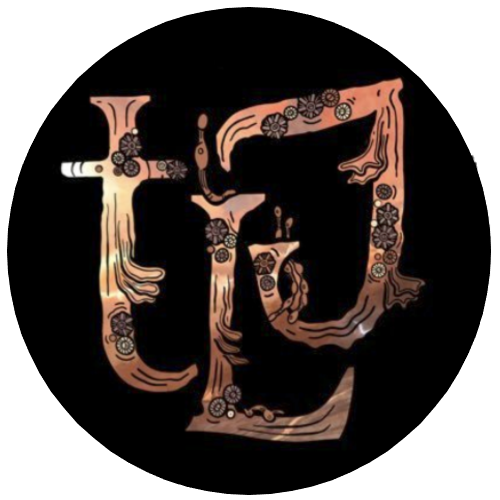The lyrics of this song were written by Mississippi journalist and poet Pearl Rivers (pen name of Eliza Nicholson). The oldest known publication dates to 1870 under the title "True to the Gray", though that version is set to a different tune.[1] The tune more commonly associated with the song is shared with another popular Confederate song from the US Civil War, "The Bonnie Blue Flag", but is actually an older Irish tune popularized by an 1850s song called "The Irish Jaunting Car".[2] At least one source further traces the tune to an air titled "The Jolly Beggarman",[3] though this editor was not able to identify the air in question.
Unlike "Bonnie Blue Flag", which was overtly nationalistic and celebratory of the Confederate cause, the verses of "Southern Girl's Reply" are focused more on the individual impacts of the war, and some have argued that it is more of a personal lament than a political one.[4] The chorus, with its "hurrahs", is easily the most nationalistic part of the song, and indeed, seems somewhat incongruous with the mournful tone of the verses; it is perhaps relevant to note that the earliest extant versions of the song from the 1870s do not include it.[5][6] The turn of the 20th century saw a surge of Lost Cause activity intended to glorify the Confederacy, and it's possible the chorus was added around then, though this is mere speculation, as no further records of the song are known until the 1940s.
Though the song has appeared on some past livestreams, it is not part of the band's current repertoire and is no longer included in the official song list.
Factoids[]
Fitzhugh Lee was Robert E. Lee's nephew, and a cavalry officer. He succeeded Jeb Stuart in commanding the cavalry of the Army of Northern Virginia.[7]
Lyrics[]
These lyrics are based on the version performed by the Longest Johns in their livestreams.
I cannot listen to your words, this land's so far and wide
Go find some happy northern girl to be your loving bride.
My brothers they were soldiers. The youngest of the three,
Was slain while fighting by the side of General Fitzhugh Lee.
{Chorus}
Hurrah! Hurrah! For the sunny South I say,
Three cheers for the southern girl
And the boys who wore the gray.
My lover was a soldier, too, he fought at God's command,
A sabre pierced his gallant heart. You might have been the man.
He reeled and fell but did not die, a horseman spurred his steed
And trampled on his dying brain. You might have done the deed.
{Chorus}
They left his body on the field, whom the fight this day had won,
A horseman spurn'd him with his heel, you might have been the one.
But there'sno hatred in my heart, nor cold nor righteous pride
For many's the gallant soldier fell upon the other side.
But still I cannot take the hand that smote my country sore,
Nor love the foe that trampled on the colours that she wore.
Between my heart and yours there rose a deep and crimson tide
My lover's and my brothers' blood forbids me be your bride.
{Chorus 2x}
Recordings[]
Gig Videos[]
Full Band Streams[]
- Surviving the first month of 2019 with The Longest Johns!!! (New donation system) (30 Jan 2019)
- The Longest Johns and Friends, February Edition (New donation system) (27 Feb 2019)
- The Longest Johns Early Octobermas (2 Oct 2019)
- It’s a stream! A Live Stream! With The Longest Johns! (13 May 2020)
Chill Streams[]
- Welcome to Chilltown! With Andy and JD - 23/03/2020 Stream Full VOD
- Welcome to the Chilldome! Playing mostly folk music… - 20/04/2020 Stream Full VOD
- Welcome to Chillville! Population: Andy - 01/05/2020 Stream Full VOD
- ↑ https://www.loc.gov/item/sm1870.02961
- ↑ https://www.battlefields.org/learn/primary-sources/civil-war-music-bonnie-blue-flag
- ↑ https://www.vousden.name/valentine.htm
- ↑ https://singout.org/the-southern-girls-reply/
- ↑ https://www.loc.gov/item/sm1870.02961
- ↑ https://archive.org/details/allanslonestarba00alla/page/192/mode/2up?q=%22true+to+the+gray%22
- ↑ https://www.fresnostate.edu/folklore/ballads/Wa156.html
